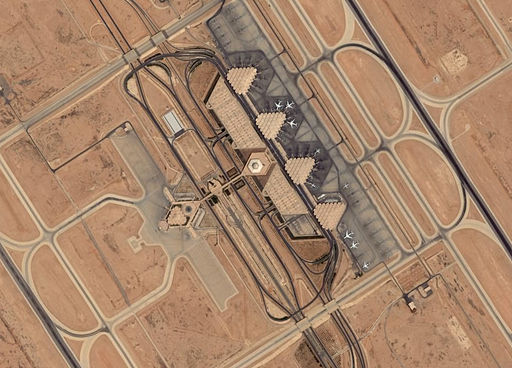King Khalid International Airport leads with 82% compliance as Saudi Arabia’s national aviation strategy sets ambitious targets for passenger and cargo growth by 2030
King Khalid International Airport in Riyadh ranked first among Saudi Arabia’s airports for operational performance in September, according to the latest data released by the General Authority of Civil Aviation (GACA). With an impressive compliance rate of 82%, Riyadh’s main airport surpassed other major international hubs in the Kingdom, reaffirming its pivotal role in Saudi Arabia’s aviation landscape.
The ranking is based on an evaluation across 11 key performance standards that gauge passenger experience, including check-in procedures, security, passport and customs control, support for passengers with limited mobility, and flight delay management. These metrics are part of GACA’s wider efforts to promote transparency and enhance the quality of service at airports nationwide, as the Kingdom pursues an ambitious aviation growth strategy.
In the same category for airports serving over 15 million passengers annually, Jeddah’s King Abdulaziz International Airport followed closely behind with a compliance rate of 73%. This highlights the ongoing competition between Saudi Arabia’s busiest airports to maintain high service standards as they cater to growing numbers of travellers.
Embed from Getty ImagesMeanwhile, in the second category for airports handling between 5 million and 15 million passengers annually, Dammam’s King Fahd International Airport retained its top position with a 91% compliance rate. This was matched by Madinah’s Prince Mohammad bin Abdulaziz International Airport, which also achieved a 91% rating, showcasing consistent service across multiple regions in the Kingdom.
In the third category, which includes international airports serving 2 to 5 million passengers annually, both King Abdullah bin Abdulaziz Airport in Jazan and Abha International Airport achieved perfect 100% compliance scores, setting an example of excellence in regional airport management.
Further demonstrating the commitment to high standards across all airports, five airports serving fewer than 2 million passengers annually also received a flawless 100% compliance score. These include Al-Ahsa Airport, Najran International Airport, Prince Naif Bin Abdulaziz International Airport in Al-Qassim, Hail International Airport, and Taif International Airport. Other airports in this category, such as Al-Jouf and AlUla International Airports, achieved a commendable 91% compliance rate.
Even smaller airports in the fifth category, which covers domestic terminals, demonstrated exceptional performance in September, with all airports achieving a 100% compliance score. This includes facilities like Gurayat Airport, Arar Airport, and Bisha Airport, as well as Turaif, Rafha, and Al-Dawadmi Airports, among others.
The strong performance of Saudi Arabia’s airports comes against the backdrop of the Kingdom’s rapidly growing aviation sector. Passenger air traffic increased by 17% in the first half of 2024, with 62 million passengers passing through the country’s airports compared to 53 million during the same period in 2023. This surge reflects Saudi Arabia’s ongoing efforts to enhance its air connectivity and expand its role as a global aviation hub.
These initiatives are part of the Kingdom’s National Aviation Strategy, which aims to boost air connectivity to 250 destinations, serving 330 million passengers annually, and double air cargo capacity to 4.5 million tons by 2030. By continuing to invest in airport infrastructure and improving service standards, Saudi Arabia is positioning itself as a key player in the global aviation industry.
With airports like King Khalid International in Riyadh leading the charge, the Kingdom is on track to achieve its ambitious goals under Vision 2030. The government’s focus on modernising the aviation sector, enhancing customer experiences, and expanding international partnerships underscores its long-term commitment to becoming a leading global aviation hub.
